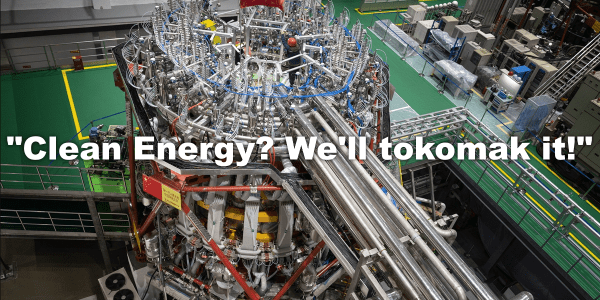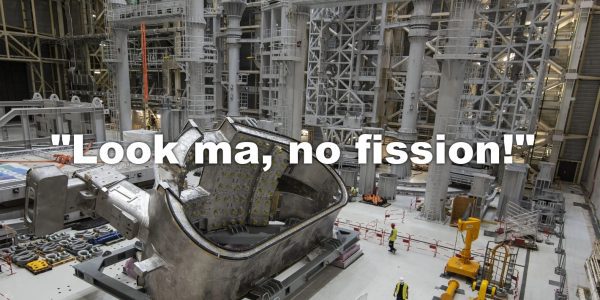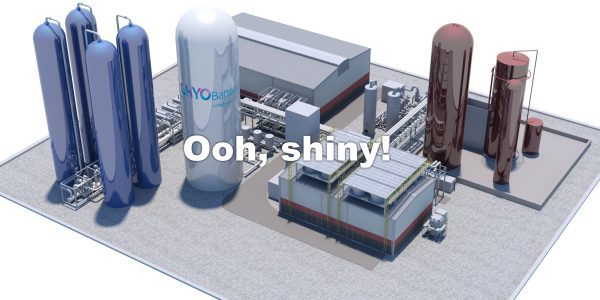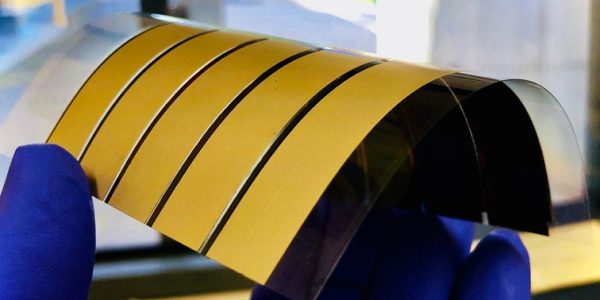Ammo Vending in Supermarkets – Convenience Armageddon
American Rounds is installing ammo vending machines in supermarkets across the country, offering customers the convenience of purchasing ammunition at any time of day while also increasing security measures through ID verification and facial recognition technology.
Starliner Space Safety – Galactic Grouches
The article discusses the impact of artificial intelligence on the future of work and the potential for job loss, as well as the importance of retraining workers for new roles in the changing economy.
“The article examines the potential job loss due to the rise of artificial intelligence and emphasizes the need for retraining workers to adapt to new roles in the evolving economy.”
China ‘Artificial Sun’ Solves Fusion?
China’s HL-3 nuclear fusion reactor, which is part of the world’s collaborative efforts in nuclear fusion research, has successfully generated its own magnetic field, a crucial component in containing and maintaining the superheated plasma needed for fusion energy, making it a significant milestone in the field, and a potential contributor to the larger ITER project in France.
Endless Wait for Fusion: ITER’s Latest Setback
The ITER experimental fusion reactor will experience a four-year delay in achieving full-energy deuterium-tritium fusion, with plasma not expected until 2036 and full-power operations not until 2039, due to a combination of changing priorities, COVID-related delays, and the switch to a new construction material.
Ultimate Punishment: AI Prisons Aren’t Scifi Anymore
The United States has the highest incarceration rate among NATO countries, and Hashem Al-Ghaili, a molecular biologist, proposes a virtual prison system called Cognify where prisoners would be subjected to artificial memories in a virtual environment, although ethical implications and effects would need to be addressed before it could become a reality.
Paul Allen Innovation Legacy Up for Auction
The Living Computers museum in Seattle, opened to the public 12 years ago and featuring interactive displays of vintage computing systems, will permanently close as its entire inventory is being auctioned off at Christie’s, including items from the Paul G. Allen Collection, after the museum and associated educational facilities were forced to close due to the pandemic in 2020, leaving it as the only major vintage computing museum in Washington State.
Fancy Cleantech Air Storage Plant Creates 700 Jobs!
Work has begun on a £300m energy plant in Carrington, near Manchester, which will store surplus electricity from wind and solar farms in liquid air and have the capacity to power 480,000 homes, creating over 700 jobs and providing long-term clean energy storage for the UK grid.
Solarpunk in New York City
Local Law 97 in New York City requires buildings over 25,000 square feet to meet specific emissions limits by 2030 or face fines, leading the owners of a 17-story building at 345 Hudson Street to install heat pumps now to meet the requirements and reduce emissions by 70-90%, through a thermal circulatory system and a miniature district heating system that will also be connected to a nearby building’s energy efficient ground source heat pump system, potentially leading to a reduction of emissions from over 6000 high rise buildings in New York City.
Breakdown: SciFi’s Influence on Psyop War
Annalee Newitz argues that the current intense cultural conflicts can be better understood as psychological warfare, which has been a permanent facet of American military doctrine since World War II and has deep roots in the 19th and 18th centuries, as seen in the work and research of science journalist and speculative novelist Paul Linebarger, who wrote the classic Cold War handbook “Psychological Warfare” and also created far-future science fiction under the pen name Cordwainer Smith, and Salon interviewed Newitz about their new book “Stories Are Weapons: Psychological Warfare and the American Mind.”
Another Solar Power Startup Chasing Perovskites
Startup Swift Solar has received a large amount of funding to develop a new type of light-absorbing material called perovskites, which have the potential to greatly improve upon the current dominant solar technology of crystalline silicon and increase the efficiency and cost-effectiveness of solar panels, but there are still challenges and uncertainties to overcome before perovskites can become a widely adopted alternative.









